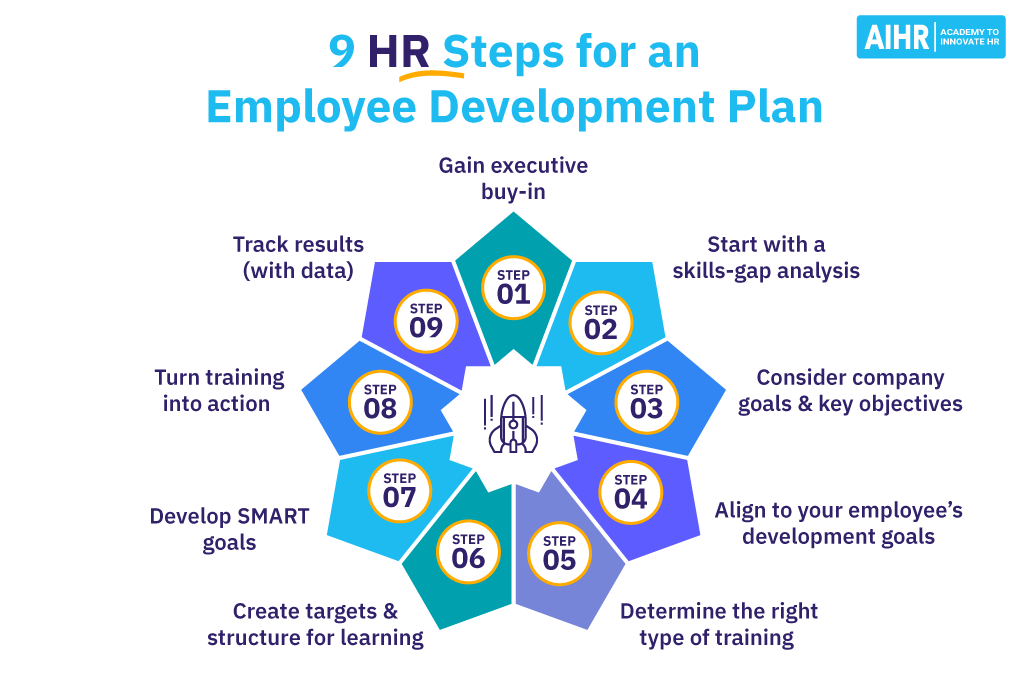Investing In Middle Management: A Strategic Approach To Business Growth And Employee Development

Table of Contents
The Critical Role of Middle Management in Business Success
Middle managers are the backbone of any successful organization. They are the crucial link connecting executive leadership's vision with the day-to-day operations and frontline employees. Their influence on overall business success is undeniable. They act as the crucial bridge, translating high-level strategic goals into actionable plans and ensuring effective implementation across teams. Effective middle management significantly impacts employee morale, productivity, and retention. A strong middle management team fosters a positive and productive work environment.
- Improved communication flow: Middle managers facilitate clear and consistent communication between upper management and employees, minimizing misunderstandings and ensuring everyone is aligned with company objectives. This enhanced communication fosters trust and transparency.
- Enhanced team performance and accountability: They build strong teams, delegate effectively, and hold their teams accountable for results. This leads to improved team performance and increased overall productivity.
- Effective implementation of company strategies: Middle managers are responsible for ensuring that company strategies are effectively implemented at the team level. They adapt strategies to their specific teams, ensuring buy-in and successful execution.
- Mentorship and development of junior employees: Middle managers play a vital role in mentoring and developing junior employees, fostering talent within the organization and ensuring future leadership capabilities. This reduces employee turnover and enhances the overall skillset of the workforce.
Strategies for Investing in Middle Management Development
Investing in middle management requires a multifaceted approach encompassing targeted training, empowerment, and recognition. This investment translates directly into improved employee performance and business results.
Targeted Training and Development Programs
Investing in the professional growth of middle managers is crucial. This investment should focus on enhancing their leadership skills, communication abilities, and conflict resolution techniques. Specialized training programs tailored to industry trends and company-specific strategies are vital for their continued effectiveness.
- Leadership workshops and seminars: These interactive sessions provide practical tools and strategies for effective leadership.
- Online courses and certifications in relevant fields: Access to online learning platforms expands their knowledge and skillset, keeping them up-to-date on industry best practices.
- Mentorship programs pairing middle managers with experienced executives: Mentorship provides valuable guidance and support, accelerating their professional development.
- Regular performance feedback and coaching sessions: Constructive feedback and coaching helps middle managers identify areas for improvement and enhance their leadership capabilities.
Empowering Middle Managers Through Delegation and Autonomy
Empowering middle managers involves granting them greater decision-making authority within their teams. This fosters a culture of trust and accountability, leading to increased engagement and job satisfaction.
- Clearly defined roles and responsibilities: Clear roles and responsibilities eliminate ambiguity and confusion, promoting efficiency.
- Access to relevant data and information: Providing access to critical information empowers middle managers to make informed decisions.
- Opportunities to participate in strategic planning: Involving middle managers in strategic planning processes allows them to contribute their insights and perspectives.
- Regular check-ins to provide support and guidance: Regular check-ins ensure that middle managers receive the support and guidance they need.
Recognizing and Rewarding Middle Management Contributions
Recognizing and rewarding middle management's contributions is vital for fostering loyalty, motivation, and retention. This involves competitive compensation and benefits packages, as well as recognition programs that celebrate their achievements.
- Performance-based bonuses and incentives: Performance-based rewards motivate middle managers to strive for excellence.
- Opportunities for professional development and advancement: Career progression opportunities are vital for retention and motivation.
- Employee recognition programs and awards: Public acknowledgement of achievements boosts morale and reinforces positive behaviors.
- Regular feedback and performance reviews: Regular feedback keeps middle managers informed of their progress and identifies areas for improvement.
Measuring the ROI of Investing in Middle Management
Measuring the return on investment (ROI) of investing in middle management is crucial to demonstrate the value of these initiatives. Tracking key performance indicators (KPIs) provides quantifiable data to show the impact of these investments.
- Improved employee satisfaction and retention: Increased employee satisfaction and lower turnover rates are direct results of investment in middle management.
- Increased team productivity and efficiency: Empowered and well-trained middle managers lead to more productive and efficient teams.
- Higher-quality work and improved customer satisfaction: Improved quality of work leads directly to better customer satisfaction.
- Enhanced business growth and profitability: Ultimately, investment in middle management directly contributes to increased business growth and profitability.
Conclusion
Investing in middle management is a strategic imperative for any organization seeking sustained growth and employee development. By implementing the strategies outlined above, businesses can unlock the immense potential of their middle managers, fostering a more engaged, productive, and ultimately successful workforce. Don't underestimate the power of investing in your middle management; it's a crucial step towards achieving your business goals and creating a thriving company culture. Start building a stronger foundation for your business by focusing on your middle management investment today!

Featured Posts
-
 Review Of Mirax Casino A Premier Online Casino In Ontario For 2025
May 17, 2025
Review Of Mirax Casino A Premier Online Casino In Ontario For 2025
May 17, 2025 -
 Alan Carr And Amanda Holdens Renovated Spanish Townhouse On Sale For E245 K
May 17, 2025
Alan Carr And Amanda Holdens Renovated Spanish Townhouse On Sale For E245 K
May 17, 2025 -
 Reeses Wisdom Advice For Van Liths Wnba Debut
May 17, 2025
Reeses Wisdom Advice For Van Liths Wnba Debut
May 17, 2025 -
 Gopo 2025 Anul Nou Care N A Fost Si Morometii 3 Domina Nominalizarile Lista Completa A Candidatilor
May 17, 2025
Gopo 2025 Anul Nou Care N A Fost Si Morometii 3 Domina Nominalizarile Lista Completa A Candidatilor
May 17, 2025 -
 16 Million Fine For T Mobile Details Of Three Year Data Breach Settlement
May 17, 2025
16 Million Fine For T Mobile Details Of Three Year Data Breach Settlement
May 17, 2025
